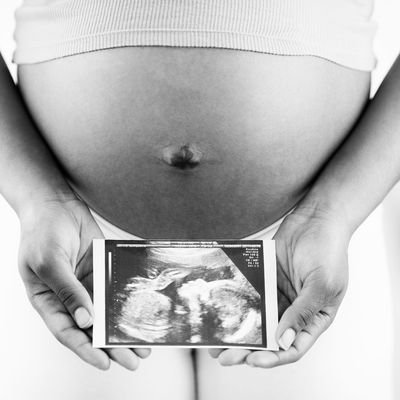
A new study connecting the climate crisis to pregnancy risk has harrowing implications for Black mothers in the United States, who already suffer much greater risk overall during their pregnancies.
A group associated with the Journal of the American Medical Association examined 57 studies published since 2007, which included data about more than 32 million births, and found that higher temperatures and pollution are both associated with premature, underweight, and stillborn births — and Black mothers are at highest risk. “We already know that these pregnancy outcomes are worse for black women,” Rupa Basu, one of the paper’s authors and the chief of the air and climate epidemiological section for the Office of Environmental Health Hazard Assessment in California, told the New York Times. “It’s even more exacerbated by these exposures.”
Overall, the survey found that the environmental aspects of climate change are linked with adverse outcomes for pregnant women everywhere. Four studies in the survey, for example, found that high temperatures were tied to an increased risk of premature birth. One study found that high exposure to air pollution during the last trimester of pregnancy was linked to a 42 percent increase in the risk of stillbirth. But the studies that examined race found that Black women were more likely to be impacted: Eight studies included in the survey noted higher risks of preterm births for Black mothers, and ten studies noted that Black mothers were at increased risk of low birth weight.
Marginalized communities in the U.S. are statistically more likely to live in urban areas called “heat islands,” which are significantly hotter than more rural areas, and in pollution zones. They are more likely to live closer to power plants and less likely to be able to afford air-conditioning. So if exposure to heat and pollutants increases birth risks, it is a threat Black women must disproportionately contend with. “This review suggests that increasingly common environmental exposures exacerbated by climate change are significantly associated with serious adverse pregnancy outcomes across the U.S.,” the authors conclude. “The subpopulations at highest risk were persons with asthma and minority groups, especially black mothers.”
Catherine Garcia Flowers, a field organizer for Moms Clean Air Force in Houston, told the Times, “This is a moment of reckoning for racial injustice and health disparities. Doing nothing about air pollution, which so clearly has a greater impact on Black Americans, is racism in action.” These risks from climate change are compounded by other systemic inequalities Black women face, like having less access to medical care.
The study comes just as scientists predicted a scorchingly hot summer.


